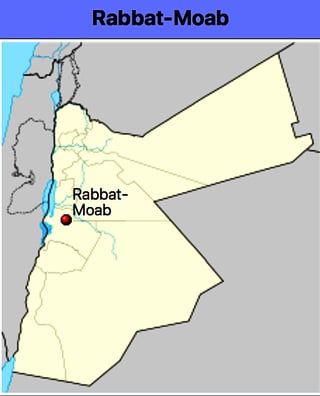In his book Panarion, Epiphanius of Salamis writes about a Jewish sect called the Osseans. Among other bits of information, he writes:
"ἀπὸ τῆς Ναβατικῆς χώρας καὶ Ἰτουραίας, Μωαβίτιδός τε καὶ Ἀριηλίτιδος, τῶν ἐπέκεινα τῆς κοιλάδος τῆς ἁλυκῆς οὕστι οὕ." (source)
"I have been told that they originally came from Nabataea, Ituraea, Moabitis and Arielis, the lands beyond the basin of what sacred scripture calls the 'Salt Sea.' This is the one which is called the 'Dead Sea.'" (Pan. I, 19:1:2, translated by Frank Williams)
(I hope I copied the entire Greek section)
While I am not really sure why he refers to Iturea as being beyond the Dead Sea, more mysterious to me is this place called Arielis. Arielis seems to come from the Hebrew word "אריאל" (Ariel)1, but I have not managed to learn what area this is referring to. I am not aware of any ancient territory around ancient Israel called by this name. Does anyone know?
1 Traditionally, the word has multiple meanings in Hebrew: a. Another name for Jerusalem (Isaiah 29:1). b. A name for the Temple in Jerusalem (for example, Shemot Rabbah 29:9). c. A name for the altar in the Temple, per the Masoretic Text (Ezekiel 43:15-16). d. A title for Moabite chieftains in biblical times (Samuel 2:23:20, Chronicles 1:11:12). e. A personal name (for example, Ezra 8:16). f. A name of an angel (Zohar Vayikra 2). The Moabite reference might be relevant, but Moab is already mentioned on the list.
